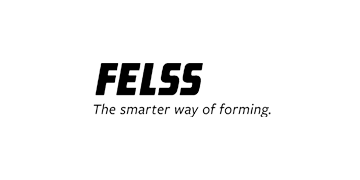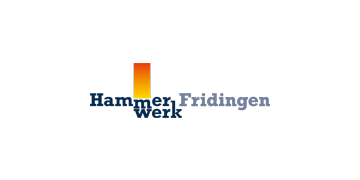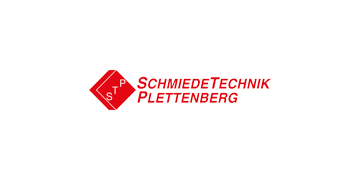| Theme | Process design, Forming technology, Industry 4.0, Artificial Intelligence |
|---|---|
| Project title | Design of efficient forging sequences with mass distribution around the center of gravity line for forging parts (Effiziente Stadienplanung) |
| Project duration | 01.11.2017 – 31.01.2021 |
| Video | |
| Download | |
| Press release |
To increase the economic efficiency in the production of geometrically complicated forgings, material efficiency is a determining factor. For a high degree of material utilization, the preforms are decisive, which can be designed using efficient planning of process chains and preform geometries.
The aim of the project is to develop a universal method for process-reliable planning of multi staged forging sequences for forgings of all kinds. Based on a CAD geometry, the method should determine the resulting center of gravity line (3D) and mass distribution of the workpiece. Starting from the finished forging, the mass distribution is to be approximated to the mass distribution of the bar stock. The method considers forming rules in order to develop the forging sequence.
This method saves enterprises time in the development of the forging sequence. Furthermore, it is possible to increase the material efficiency in the production process by using the method.
Publications about the project
The development process for designing die sequences in drop forging is an experience-dependent and time-consuming process. Due to the high competitive pressure, small and medium-sized companies in the forging industry in particular often do not have the capacity for a detailed design of efficient and optimized stage sequences. In this thesis, a method was developed for the automated design of multi-stage die forging sequences based on component geometry. The developed method consists of individual modules that gradually determine the necessary parameters (mold class, complexity of the forged part, number of steps, burr proportion) for the design of a stage sequence from the component geometry and generate the individual intermediate forms of the stage sequence. The application of the method to various component geometries has shown that stage sequences can be generated automatically for a wide range of forged components (long forms, disk forms, squat forms, curved long forms, long forms with forks). Forming-related boundary conditions such as volume constancy and permissible changes in length are adhered to. FEM simulations were used to check the quality criteria of mold filling and freedom from wrinkles, demonstrating that the method generates process-reliable stage sequences.
Forging, CAD, stage planning, automated process design
Forgings are produced in several process steps, the so-called forging sequence. The design of efficient forging sequences is a very complex and iterative development process. In order to automate this process and to reduce the development time, a method is presented here, which automatically generates multi-stage forging sequences for different forging geometries on the basis of the component geometry (STL file). The method was developed for closed die forging. The individual modules of this forging sequence design method (FSD method) as well as the functioning of the algorithm for the generation of the intermediate forms are presented. The method is applied to different forgings with different geometrical characteristics. The generated forging sequences are checked with FE simulations for the quality criteria form filling and freedom from folds. The simulation results show that the developed FSD method provides good approximate solutions for an initial design of forging sequences for closed die forging in a short time.
forging sequence, forging sequence planning, automation
Reducing the planning and development time for efficient staging sequences in closed die forging offers companies in the forging industry a high potential for responding to competitive to respond to competitive challenges and remain competitive.The digitization of development processes opens up innovative support options for companies.
forging sequence desing, forming technology, digitization, process development, CAD
To increase the economic efficiency in the production of geometrically complicated forgings, material efficiency is a determining factor. In this study, a method is being validated to automatically design a multi-staged forging sequence initially based on the CAD file of the forging. The method is intended to generate material-efficient forging sequences and reduce development time and dependence on reference processes in the design of forging sequences. Artificial neural networks are used to analyze the geometry of the forging and classify it into a shape class. Result of the analysis is information on component characteristics, such as bending and holes. From this, special operations such as a bending process in the forging sequence can be derived. A slicer algorithm is used to divide the CAD file of the forging into cutting planes and calculate the mass distribution around the center of gravity line of the forging. An algorithm approaches the mass distribution and cross-sectional contour step by step from the forging to the semi-finished product. Each intermediate form is exported as a CAD file. The algorithm takes less than 10 min to design a four-stage forging sequence. The designed forging sequences are checked by FE simulations. Quality criteria that are evaluated and investigated are form filling and folds. First FE simulations show that the automatically generated forging sequences allow the production of different forgings. In an iterative adaptation process, the results of the FE simulations are used to adjust the method to ensure material-efficient and process-reliable forging sequences.
Automatic process design, Forging, FEA, Resource efficiency, CAD
A method is presented that enables the complexity of a forging to be determined automatically on the basis of the CAD file of the forging. An automated evaluation of the forging complexity is necessary for a digitized and automated design of stage sequences in order to be able to determine important design parameters such as the flash ratio or the number of stages.
CAD, forming technology, algorithms
This paper presents a method for the automated classification of forged parts for classification into the Spies order of shapes by artificial neural networks. The aim is to develop a recognition program within the framework of automated forging sequence planning, which can directly identify a shape class from the CAD file of the forged part and characteristics of the forged part relevant for the design of the process.
forging, ANN,CAD
Material efficiency and the development time of a forging sequence are decisive criteria for increasing the economic efficiency in the production of complex forgings. SMEs can often only interpret forging sequences in a shortened form due to insufficient capacities and high competitive pressure. Therefore, a generally valid method is to be developed that automatically generates multi-stage, efficient forging sequences based on the mass distribution of any forged part.
automated process design, die forging, resource efficiency
Jobs
-
Artificial Intelligence, Automation, Forming technology
Internship












